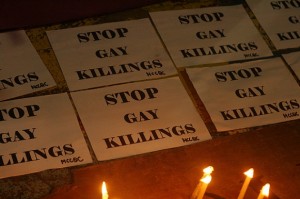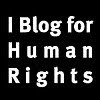
From 8–10 June 2011, the United Nations convened more than forty heads of state and ministers in a High Level Meeting that would plot the next phase of the struggle to eliminate HIV and AIDS. The High Level Meeting marks the 30th year since the discovery of AIDS, and while there is cause for optimism due to a global decline in new infections and HIV-related deaths, the next roadmap cannot be premised on complacency or a backslide in political commitments. Now, more than ever, global leaders should commit more and scale up their actions to eliminate the epidemic and put an end to this protracted and costly fight.
The Philippines has crucial stakes in this international effort. After all, it is one of the only seven countries worldwide that is experiencing an alarming rise in HIV infection. It is likewise heavily reliant on foreign aid in its HIV and AIDS response, thus the outcome of the UN High Level Meeting would have implications on the country’s HIV and AIDS programs and services.
Despite these important considerations, the Philippines scaled down its participation in the High Level Meeting. Where other countries chose to send their heads of state and high ranking ministers who can commit to fight and lobby for a more effective global plan on HIV and AIDS, President Noynoy Aquino and his political alteregos, especially Health Secretary Enrique Ona, decided to skip the High Level Meeting. Also telling was the last minute approval of the inclusion of CSO representation in the national delegation.
This reflects a pattern of indifference and lack of political will on the part of the government on an issue that merits immediate action. The Aquino administration is clearly ignoring the gravity of the situation: the country is sitting on an HIV time bomb, and yet the government refuses to do anything.
The spike in new infections should be enough to wake the government from its complacency: HIV may not have reached the general population yet, but it is moving towards that direction. Based on the targets that were set five years ago, the country has failed to stop HIV infection among Filipino men who have sex with men and transgenders from reaching epidemic level. Data shows that OFWs are no longer the drivers of the epidemic, but HIV infection is still rising among Filipino migrant workers. In the last two years, the Philippines has also seen a marked increase in infections among people who inject drugs. NCR and other urban centers, especially Cebu, Davao, Batangas, and Baguio are likewise breaching past epidemic targets that the country has actually committed to prevent.
The DOH has warned that a 500% increase in HIV infection is likely to happen under the Aquino administration. This alarming increase is the message: inaction is no longer an option.
The steps that the government should take to reverse the trend and prevent the explosion of an HIV epidemic are crystal clear: it must increase support for programmes and services, especially evidence-based preventive interventions such as safer sex education, condom use, and harm reduction; it must ensure sustainable HIV and STI treatment, care and support for Filipinos living with HIV; it must protect and promote the human rights of people living with HIV and of populations and communities that are vulnerable to the virus, especially men who have sex with men, transgenders, people who inject drugs, and sex workers; it must address the climate of stigma that is attached to the HIV epidemic, which has made it more difficult for effective HIV services to reach the affected populations and communities; and, it must scale up its political commitment to stop HIV and AIDS.
We believe that the HIV epidemic in the Philippines can still be halted and reversed. But that cannot happen without the government rallying its political will and its resources behind the fight to eliminate HIV and AIDS.
Signatories:
Action for Health Initiatives (ACHIEVE), Inc.
AIDS Society of the Philippines (ASP)
Aklan AIDS Council
Aklan Butterfly Brigade
ALAGAD-Mindanao
Alliance of Young Nurse Leaders & Advocates International Inc. (AYNLA)
Alliance of Young Health Advocates (AYHA)
Catholic Asia Pacific HIV/AIDS Network (CAPCHAN)
Concerned Bisexual Community of the Philippines (CBCP)
Institute for Social Studies & Action Philippines (ISSA)
IWAG-Dabaw
Kabataang Gabay sa Positibong Pamumuhay (KGPP)
Ladlad Partylist
National Federation of Filipino Living with HIV and AIDS (NaFFWA)
Philippine Legislators Committee on Population & Development (PLCPD)Philippine NGO Support Program, Inc. (PHANSUP)
Pinoy Plus Association (PPA+)
Positive Action Foundation Philippines, Inc. (PAFPI)
Progay Philippines
Queer Pagan Network (QPN)
S.H.I.N.E. SOCCSKSARGEN, Inc.
Student Nurses Alliance of the Philippines (SNA)
The Rainbow Nightingales Project (RNP)
TLF SHARE Collective
Youth AIDS Filipinas Alliance, Inc. (YAFA)
Youth Consortium for the Passage of the RH Bill

















































